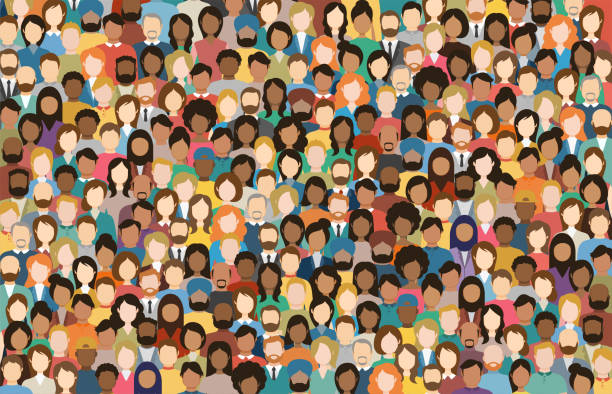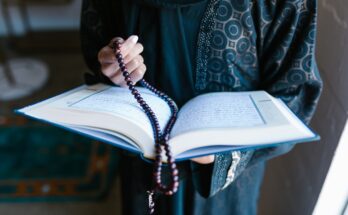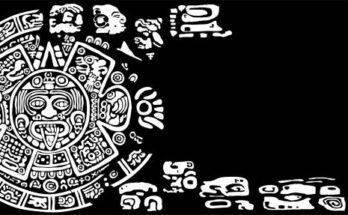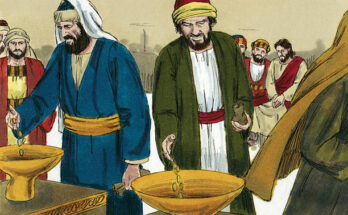Religions have played a significant role in shaping the social fabric of human societies throughout history. Beyond their spiritual and moral dimensions, religions often serve as powerful social glue, binding individuals into communities and, on a larger scale, fostering a sense of national identity. This article explores the multifaceted ways in which religions function as cohesive forces, weaving together the intricate tapestry of communities and nations.
Beyond communities, religions play a vital role in preserving cultural heritage. Religious texts and traditions become repositories of language, art, and music, passing down cultural values from generation to generation. This cultural preservation contributes to the formation of distinct cultural communities within larger societies.
The Role of Religion in Community Building
 (Photo from iStock)
(Photo from iStock)
At the heart of many religious traditions lies a communal aspect that goes beyond individual beliefs and practices. Religious communities provide a sense of belonging, shared values, and a framework for social interaction. Places of worship, such as churches, mosques, temples, and synagogues, serve as focal points for community members to gather, share experiences, and reinforce a collective identity.
Religious rituals and ceremonies play a crucial role in community bonding. Whether it’s the weekly congregational prayers, festivals, or rites of passage, these shared experiences create a sense of unity and solidarity among the followers of a particular faith. The shared adherence to religious doctrines and principles further reinforces a common moral framework that guides individual behaviour and fosters a sense of responsibility towards fellow community members.
Moreover, religious communities often engage in charitable activities, contributing to the well-being of their members and the broader society. Acts of compassion and altruism, rooted in religious teachings, strengthen the social fabric by promoting a sense of mutual care and support.
Religions as Custodians of Culture
 (Photo from iStock)
(Photo from iStock)
Beyond the immediate community level, religions play a pivotal role in preserving and transmitting cultural values from one generation to the next. Religious texts, traditions, and teachings often serve as repositories of cultural heritage, providing a framework for understanding the world and one’s place in it.
In many societies, religious institutions have been the custodians of language, art, music, and other cultural expressions. Through religious practices, storytelling, and rituals, communities pass down their cultural heritage, ensuring continuity and a shared sense of identity. This cultural preservation contributes to the formation of distinct cultural communities within larger societies, further emphasizing the role of religion as a social glue.
Religions have long served as a powerful adhesive, binding individuals into communities and shaping national identities. At the community level, religious institutions provide a sense of belonging, shared values, and moral guidance. Weekly congregational gatherings, festivals, and rites of passage create shared experiences, fostering unity among believers.
Religions and National Identity
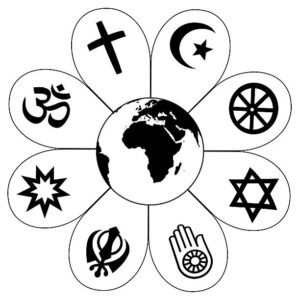 (Photo from iStock)
(Photo from iStock)
The impact of religion on a broader scale extends to the formation and sustenance of national identity. Many nations have histories intricately intertwined with religious narratives, and religious symbols often play a central role in the collective imagination of a people.
National rituals and ceremonies frequently incorporate religious elements, reinforcing the idea of a shared heritage and destiny. For instance, the swearing-in of political leaders on religious texts or the inclusion of religious symbols in national flags and anthems can be seen as expressions of the symbiotic relationship between religion and national identity.
Religious diversity within a nation can also contribute to a rich tapestry of identities. In countries with a mosaic of religious traditions, the acknowledgment and celebration of this diversity can become a unifying factor. However, managing this diversity requires careful navigation to ensure that religious differences do not lead to social fragmentation.
Challenges and Tensions
 (Photo from iStock)
(Photo from iStock)
While religions have the potential to act as social glue, it is essential to acknowledge that they can also be a source of tension and division. History is replete with examples of conflicts arising from religious differences, both within and between nations. The same religious narratives that bind communities together can, at times, be wielded to exclude or marginalize those who do not share the same beliefs.
Religious institutions, if misused or corrupted, can become power centres that exacerbate social inequalities and hinder the progress of societies. The rigid adherence to dogma and resistance to change, inherent in some religious traditions, can impede social and cultural evolution, leading to tensions between religious and secular worldviews.
Moreover, the intersection of religion and politics can be a double-edged sword. While it can serve as a unifying force, it also has the potential to be manipulated for political ends. Leading to the exploitation of religious sentiments for power and control.
Conclusion
In conclusion, religions have played a crucial role in shaping the social fabric of communities and nations throughout human history. As social glue, religions bind individuals into cohesive communities, providing a sense of belonging, shared values, and a moral framework. At the national level, religions contribute to the formation of identity. Influencing rituals, symbols, and narratives that define a collective sense of self.
However, it is crucial to navigate the delicate balance between the unifying potential of religions and the challenges they pose. Acknowledging and appreciating religious diversity, promoting tolerance. And fostering an inclusive understanding of national identity are essential for harnessing the positive aspects of religions. As social glue while mitigating the potential for division and conflict. In a world marked by diversity. The role of religions in building bridges between communities and nations remains a dynamic. And complex aspect of our shared human experience.
Religions also play a significant role in shaping national identity. Religious symbols and narratives often intertwine with the history and destiny of nations. National rituals incorporate religious elements, reinforcing a shared heritage. However, it is essential to recognize the challenges, as religious differences can lead to tensions and conflicts. Navigating the delicate balance between the unifying potential of religions. And their divisive tendencies is crucial for harnessing their positive impact on communities and nations. In a diverse world, understanding the dynamic role of religions in building bridges remains essential for fostering unity amidst complexity.

